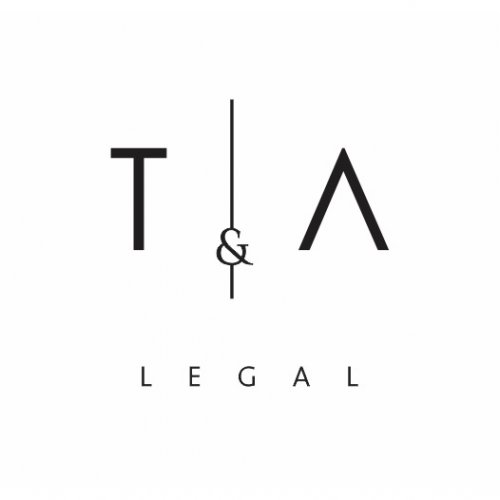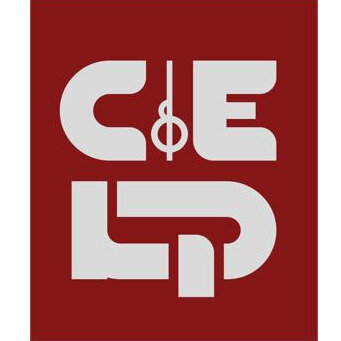Best Collaborative Law Lawyers in Nigeria
Share your needs with us, get contacted by law firms.
Free. Takes 2 min.
Free Guide to Hiring a Family Lawyer
Or refine your search by selecting a city:
List of the best lawyers in Nigeria
About Collaborative Law in Nigeria
Collaborative Law is a legal practice that focuses on resolving disputes through cooperative rather than adversarial means. In Nigeria, Collaborative Law aims to provide a structured process for conflict resolution where parties work together with trained professionals to find mutually beneficial solutions. This practice is particularly beneficial in family law, commercial, and civil dispute contexts. By prioritizing negotiation and dialogue, Collaborative Law seeks to reduce the stress, cost, and time involved in traditional litigation.
Why You May Need a Lawyer
Many situations can lead individuals or businesses to seek legal assistance in the field of Collaborative Law in Nigeria. Here are some common scenarios:
- Family disputes, such as divorce or child custody arrangements, where a collaborative approach can help in reaching amicable settlements.
- Business disagreements, especially between partners or stakeholders, where negotiation can maintain business relationships.
- Disputes involving contracts or property where parties seek to avoid lengthy court battles.
- Organizational conflicts in non-profit or community settings, which require a harmonious resolution to maintain ongoing cooperation.
Local Laws Overview
Nigerian law supports alternative dispute resolution methods, which include Collaborative Law under the Alternative Dispute Resolution (ADR) framework. The Arbitration and Conciliation Act and other related legislation provide the legal basis for out-of-court settlements. Collaborative processes are voluntary and rely heavily on the willingness of parties to engage in dialogue, guided by experienced legal practitioners trained in this area. The emphasis is on confidentiality, good faith, and transparently exchanging information.
Frequently Asked Questions
What is Collaborative Law?
Collaborative Law is a legal process where parties work together with their lawyers to resolve disputes amicably without going to court.
Who can practice Collaborative Law in Nigeria?
Collaborative Law can be practiced by legal professionals who are trained and certified in mediation and other alternative dispute resolution methods.
Is Collaborative Law recognized in Nigeria?
Yes, Collaborative Law is recognized as a part of the broader Alternative Dispute Resolution mechanisms encouraged within the Nigerian legal system.
What types of cases are suitable for Collaborative Law?
Cases involving family law, contractual disagreements, employment disputes, and business conflicts are often suitable for Collaborative Law.
How does Collaborative Law differ from mediation?
While both are alternative dispute resolution methods, Collaborative Law involves attorneys actively participating with their clients whereas mediation involves a neutral third-party facilitating the process.
What are the benefits of choosing Collaborative Law?
Collaborative Law can save time and costs associated with court proceedings and help maintain relationships through cooperative negotiation.
Are the outcomes legally binding?
Yes, agreements reached through Collaborative Law can be made legally binding if the parties choose to formalize them.
Do I have to find a special lawyer for Collaborative Law?
Yes, it's advisable to find a lawyer specifically trained in Collaborative Law to facilitate the process effectively.
What happens if an agreement cannot be reached?
If an agreement cannot be reached, parties may choose to proceed to court, and new legal representation would be required.
What should I prepare before starting a collaborative process?
You should gather all relevant information regarding the dispute, clearly understand your desired outcomes, and be ready to engage openly in negotiations.
Additional Resources
Those seeking further information or assistance on Collaborative Law in Nigeria may consider reaching out to the following:
- The Nigerian Bar Association (NBA) - Offers resources on legal professionals and ADR processes.
- Legal Aid Council of Nigeria - Provides support for accessing legal services.
- Institute of Chartered Mediators and Conciliators (ICMC) - Offers training and certification resources.
- National Human Rights Commission - Can offer guidance and resources on rights and legal processes.
Next Steps
If you need legal assistance in Collaborative Law, here are some steps to guide you:
- Research and identify lawyers who are trained in Collaborative Law.
- Schedule consultations to discuss your case and potential collaborative processes.
- Prepare all relevant documents and information related to your dispute.
- Explore available ADR options and consider their suitability for your situation.
- Engage in the collaborative process, aiming for open communication and cooperation with all parties involved.
Lawzana helps you find the best lawyers and law firms in Nigeria through a curated and pre-screened list of qualified legal professionals. Our platform offers rankings and detailed profiles of attorneys and law firms, allowing you to compare based on practice areas, including Collaborative Law, experience, and client feedback.
Each profile includes a description of the firm's areas of practice, client reviews, team members and partners, year of establishment, spoken languages, office locations, contact information, social media presence, and any published articles or resources. Most firms on our platform speak English and are experienced in both local and international legal matters.
Get a quote from top-rated law firms in Nigeria — quickly, securely, and without unnecessary hassle.
Disclaimer:
The information provided on this page is for general informational purposes only and does not constitute legal advice. While we strive to ensure the accuracy and relevance of the content, legal information may change over time, and interpretations of the law can vary. You should always consult with a qualified legal professional for advice specific to your situation.
We disclaim all liability for actions taken or not taken based on the content of this page. If you believe any information is incorrect or outdated, please contact us, and we will review and update it where appropriate.
Browse collaborative law law firms by city in Nigeria
Refine your search by selecting a city.















